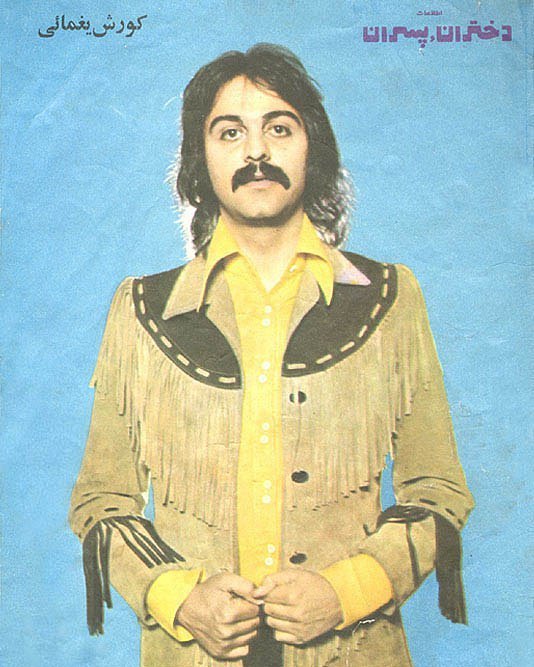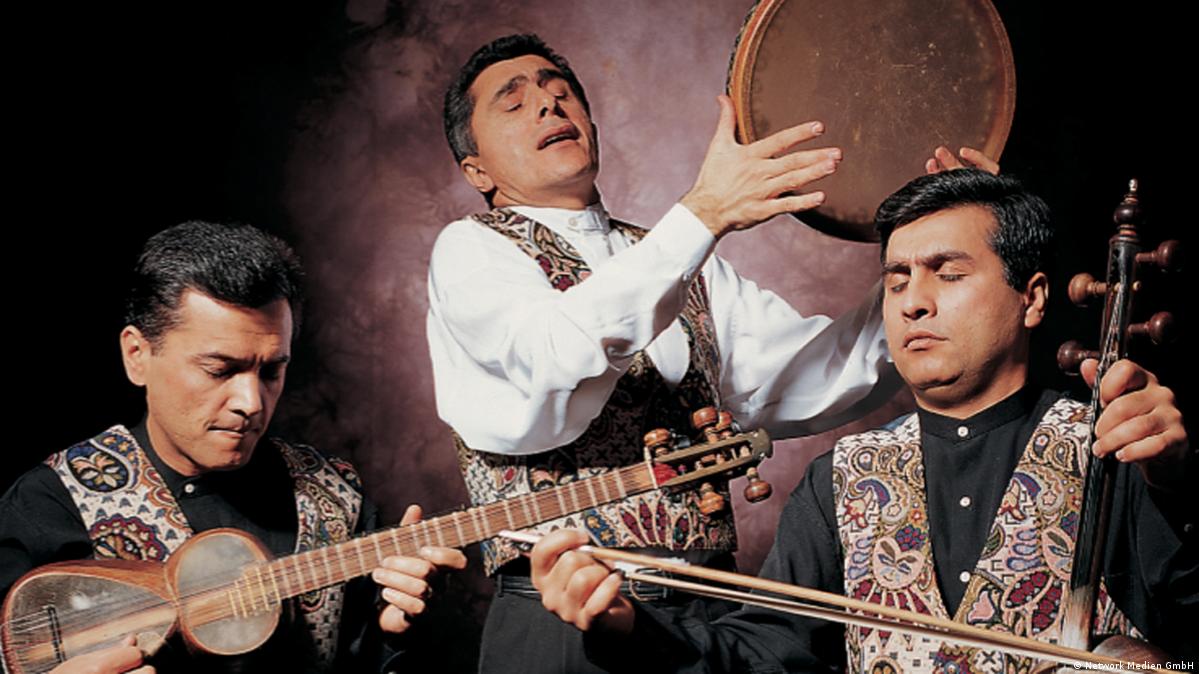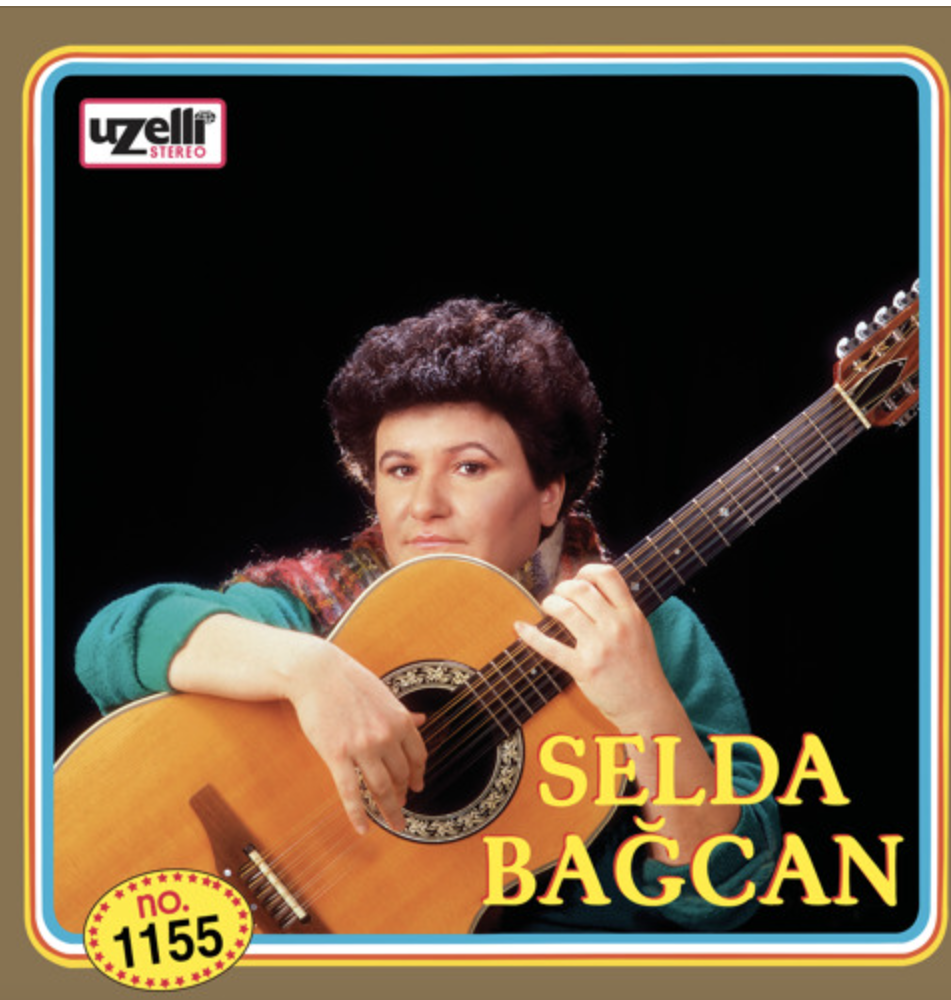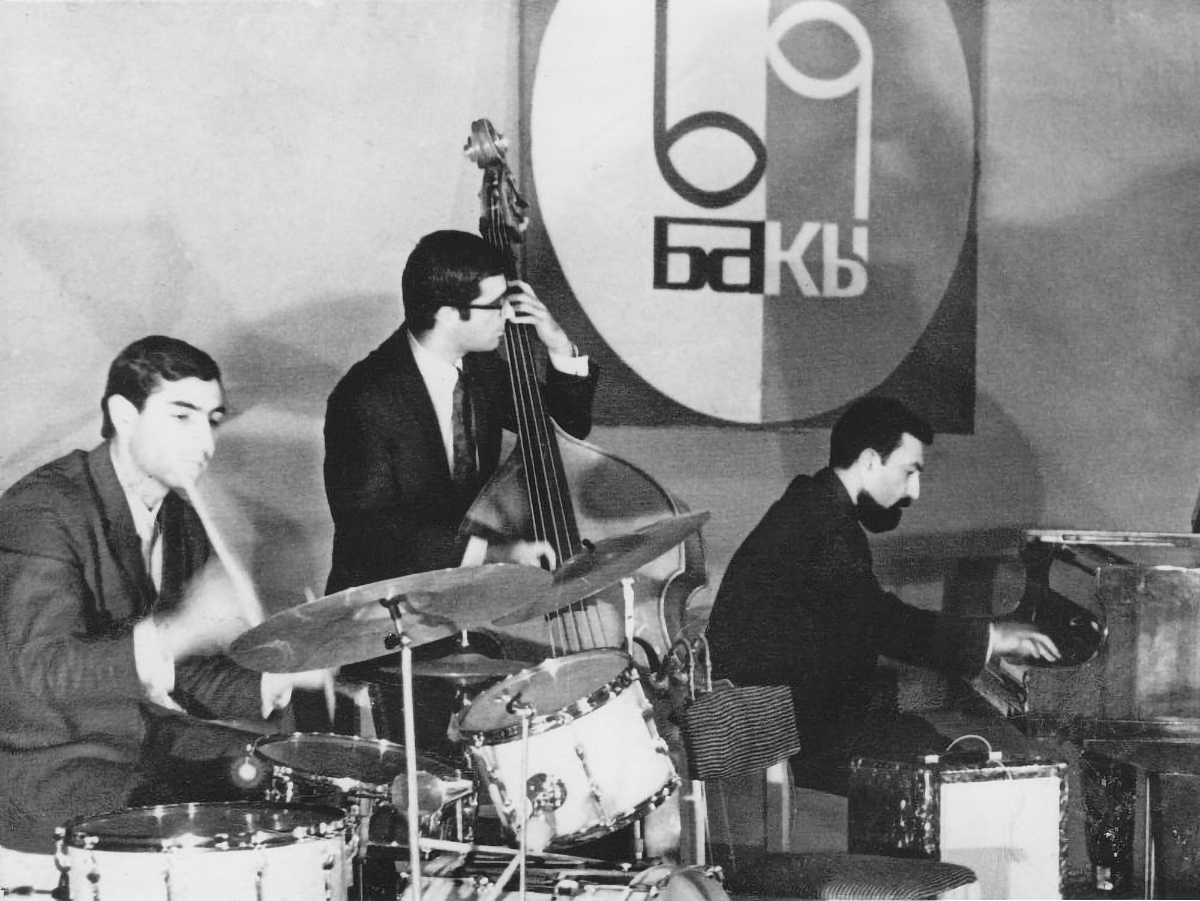The following is a guest post by Naz Mahmoudzadeh, who currently works on a farm school and in human rights. Naz has a masters from SOAS, University of London, and focused her research on post-Soviet urbanism and the “right to the city” in the South Caucasus. She has a passion for Azeri and Iranian folk music and is learning to play the setar.
***
Azerbaijan’s folk art and music have acted as pillars of cultural identity within Azerbaijan and amongst transnational Azerbaijani communities elsewhere, including in Iran, other parts of the former USSR, and Turkey. While 8 million Azeris live inside the Republic of Azerbaijan, nearly 30 million live elsewhere across the region. As Azeri folk melodies travel across these borders, they have also transcended the different Azeri communities through which they flow, and in some instances are spread across and absorbed by publics in other nation states, finding space and significance amongst the wider national consciousness of the countries.
Today, Azeri folk music remains a living, breathing cannon; music-making within Azerbaijan and in Azeri transnational communities remains informed by these melodies, which are constantly being creatively reworked. Contemporary artists have continued to engage and experiment with the melodies; old folk melodies become vessels for new story-telling through experimentation with Western musical forms, and new lyrics appended to the folk melodies, sometimes in languages different than that of the traditional version altogether.
This mixtape considers a number of these exchanges, taking four Azeri folk tunes in their more traditional forms and pairing them with their contemporary counterparts, exploring the ways in which artists have reimagined melodies and transfigured folk tunes to incorporate the new meanings they have taken on.
Tracklist:
1) Dağlar Gizi Reyhan Rashid Behbuhdov 00:00
2) Dağlar Gizi Reyhan Kourosh Yaghmaei 02:22
3) Dağlar Gizi Reyhan Andy 06:10
4) Sari Gəlin Alim, Hilliard Ensemble, Sainkho Namtchylak 10:35
5) Sari Gəlin Selda Bagcan 20:36
6) Getmə Getmə Gəl Alim Qasimov 25:22
7) Getmə Getmə Gəl Vaghif Mustafazade 37:29
8) Ay Gülə Batin Rashid Behbuhdov 40:48
9) Ay Gülə Batin Parisa Arsalani 45:11
Dağlar Gizi Reyhan
Dağlar Gizi Reyhan (‘Mountain Girl Reyhan’) is an Azerbaijani and Turkish folk song, composed by prolific Azerbaijani composer Fikret Amirov. Amirov is the founder of the “symphonic mugham” genre, a blend of Western classical orchestral music with traditional Azeri mugham melodies.
The lyrics are lifted from a poem by Tələt Eyyubov, an Azeri poet and translator best known for his translations of the complete sonnets of Shakespeare into Azeri. Eyyubov was friends with Oruj Goshlari, a soldier-turned-writer and poet following his expulsion from the Communist Party. Goshlari changed his daughter’s name from Dordaneh to Reyhan without his wife’s consent or knowledge. Goshlari told the story to his friend Eyyubov, and Eyyubov wrote the poem as a peace offering to Goshlari’s wife, who was incensed by her husband’s deceit.
The song was covered by Iranian singer Kourosh Yaghmaei in 1973. Yaghmaei is best known as a pioneer of the psychedelic rock genre in Iran. His rendition of the folk song Reyhan is slick and synthy and representative of Yaghmaei’s experimentation with different musical instruments in his transfiguration of folk melodies. A particular highlight of the track is the synth solo, the melody for which is directly borrowed from 70’s English rock band Deep Purple’s song “Burn”.

Also included in the mix is the 2002 cover of the track by Iranian-Armenian pop star Andy. This incarnation of the folk tune feels almost unrecognizable from its traditional form, with Andy providing a fresh set of Persian lyrics, and transforming it into a high-energy, dance anthem.
Sari Gəlin
Sari Gəlin (‘Blonde Bride’) is a folk song popular across Azerbaijan, Armenia, Turkey and Iran. The melody is shared across the regions, with the lyrics and stories differing slightly as they traverse geographical and cultural boundaries. It is one of many songs shared between Azerbaijanis and Armenians.
In Azerbaijan, the song explores the pain and anguish of a love-struck young man and his forbidden love for his Sari Gəlin (‘blonde bride’). It is believed the song is based on a legend about a young Muslim boy and Christian girl cruelly kept apart by their disapproving families.
In the chosen track, the legendary Alim Qasimov and his Azeri folk ensemble perform the song in the classical mugham tradition. Mugham is a complex, traditional art-music characterized by a high degree of improvisation within certain makkams, or modes. Mugham is closely associated with Sufism, with mugham having been cultivated by Sufis who used the sound to induce a transformation of consciousness and promote a state of hal, an ecstatic mystical state enabling union with the divine.
This 1999 recording was performed in a Church in Switzerland. The recording is particularly special; Qasimov collaborates with the Hilliard Ensemble, a British acapella ensemble renowned for their performances of early English music, and Sainkho Namtchylak, a Tuvan musician known for her mastery of Khoomei, or Tuvan throat singing.
The heady mix of the three musical traditions creates an extremely special atmosphere, engendering, certainly, a feeling of hal.

The song is given new life by legendary Turkish singer Selda Bağcan, often dubbed the ‘Queen of Turkish Psychedelic Funk’. Her 2008 cover of the song is included in the mix.

Getmə Getmə Gəl
I include a traditional mugham rendition of Getmə Getmə Gəl (‘Don’t Leave, Stay’) by Alim Qasimov, which, like in Sari Gəlin, also comes with a twist. The chosen track is a collaboration between Alim Qasimov and his ensemble of traditional Azeri folk instruments, and the Kronos Quartet, a classical string quartet based in San Francisco.
David Harrington of the Quartet first encountered Qasimov’s voice in the 1980’s, and upon hearing it vowed to collaborate with him on a project. The collaboration was facilitated 20 years later by the Aga Khan Music Initiative. The Quartet commissioned arranger Jacob Garchik to create string arrangements of Qasimov’s mugham repertoire. Qasimov, his ensemble and Kronos met in San Francisco and recorded this piece (and a full album of mugham pieces) in 2008. The rendition is electric and again that feeling of hal is not difficult to sense.
Vaghif Mustafazade was an iconic Azeri jazz pianist and composer, and father of the “mugham jazz” genre, a fusion of Western jazz and the modal scales of traditional Azeri mugham.
Mustafazade’s jazz-mugham fusion was well celebrated amongst his peers, including legendary blues artist B.B. King and American jazz trumpeter Dizzy Gillepsie, who called Mustafazade’s music “the music of the future.”

In the chosen track, recorded in the 1960s, Mustafazade interprets the folk tune by way of a full Western jazz ensemble, instruments including saxophones, a double bass, and drums.
The marriage between Eastern and Western musical traditions is clearly present – note the drummer switches between playing with drumsticks for parts of the song, to using more traditionally Eastern percussive techniques, playing the drums with his hands, as if playing the gaval, a traditional Azeri percussion instrument. This is clearly seen in the video to the track at 0:55.
Ay Gülə Batin
Our last folk tune, Ay Gülə Batin, is a love song about a woman named Gülə Batin. The mix includes a recording of the song by Azerbaijani singer Rashid Behbudov, well known for his recordings of traditional Azeri and Iranian folk songs. Behbuhdov was the soloist of the Azerbaijan Philharmonic Hall from 1944 to 1956 and was awarded the People’s Artist of Azerbaijan in 1951.
Parisa Arsalani, born in Iranian Azerbaijan, is an Azeri pop musician from Iran now based in Baku. Arsalani’s recording of the track is from her 2011 session on the long-running BBC Persia live music show Kook. Arsalani is accompanied by a drummer and guitarist, giving a fun jazz-rock spin on the folk tune, with a couple of electric guitar solos thrown in for good measure. The recording ends with Kook presenter Behzad Bolour perfectly summing up our mixtape:
« من ایگولا بتین رو شنیده بودم ولی این روش رو تا حالا نشنیده بودم » ‘
“I’ve heard Ay Güla Batin, but I’ve not heard it done like that before!”
References and Further Reading
Elliot, Mark. “Sari Gelin – Who Does it Really Belong To?” Caspian Post, June 16 2021. https://caspianpost.com/en/post/culture/arts/sari-gelin-who-does-it-belong-to.
Garibova, Jala. “Reconstruction of Identities in Post-Soviet Azerbaijan” Indiana University Bloomington, April 29, 2019. https://iaunrc.indiana.edu/news-events/news/garibova-reconstruction-of-identities-in-azerbaijan.html.
Goyushov, Nasib Jumshud oglu. “The Spiritual and Aesthetic Foundation of Mugham” Visions of Azerbaijan, July 2011. http://www.visions.az/en/news/312/160ed980.
Gratien, Chris and Leili Vatani. “Shared Tradition in Armenian, Azeri and Turkish Folklore.” Ottoman History, September 22, 2011. https://web.archive.org/web/20131030165358/http://www.ottomanhistorypodcast.com/2011/09/shared-traditions-in-turkish-armenian.html
Kronos Quartet. “The Kronos Quartet/ Alim Qasimov.” Youtube, May 14, 2009. https://www.youtube.com/watch?v=MHMpmB4olbA.
Report Georgia. “Rashid Behbudov – Tblisi Legend of Azerbaijani Music.” Report Georgia, April 27, 2021. https://report.ge/en/society/rashid-behbudov-tbilisi-legend-of-azerbaijani-music/.
Reynaldi, Reyhan. “What’s in a Name? Reyhan – That Girl, That Song”. Azerbaijan International, no. 13.1 (2005): 78-79 https://www.azer.com/aiweb/categories/magazine/ai131_folder/131_articles/131_reyhan.html
Samadoglu, Vagif. “The Emergence of Jazz in Azerbaijan.” Azerbaijan International, no. 5.4 (1997): 72-75 https://www.azer.com/aiweb/categories/magazine/54_folder/54_articles/54_vmustafazade.html
Todarova, Bogdana. “The Music Sent by God.” Balkan Journal of Philosophy 14 no. 1 (2022): 35-40.










